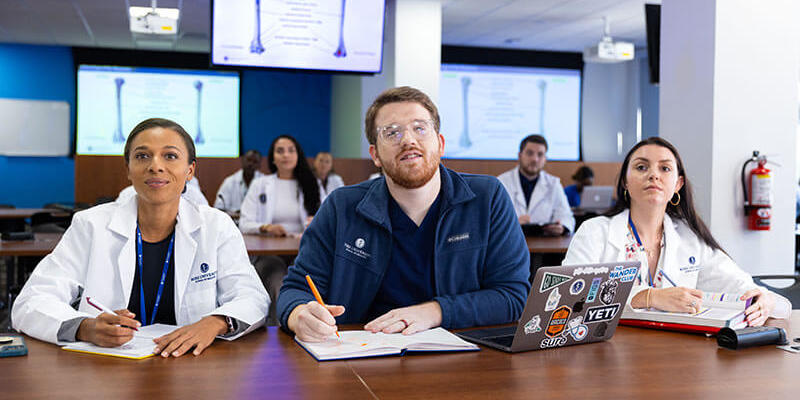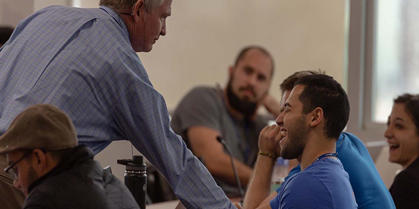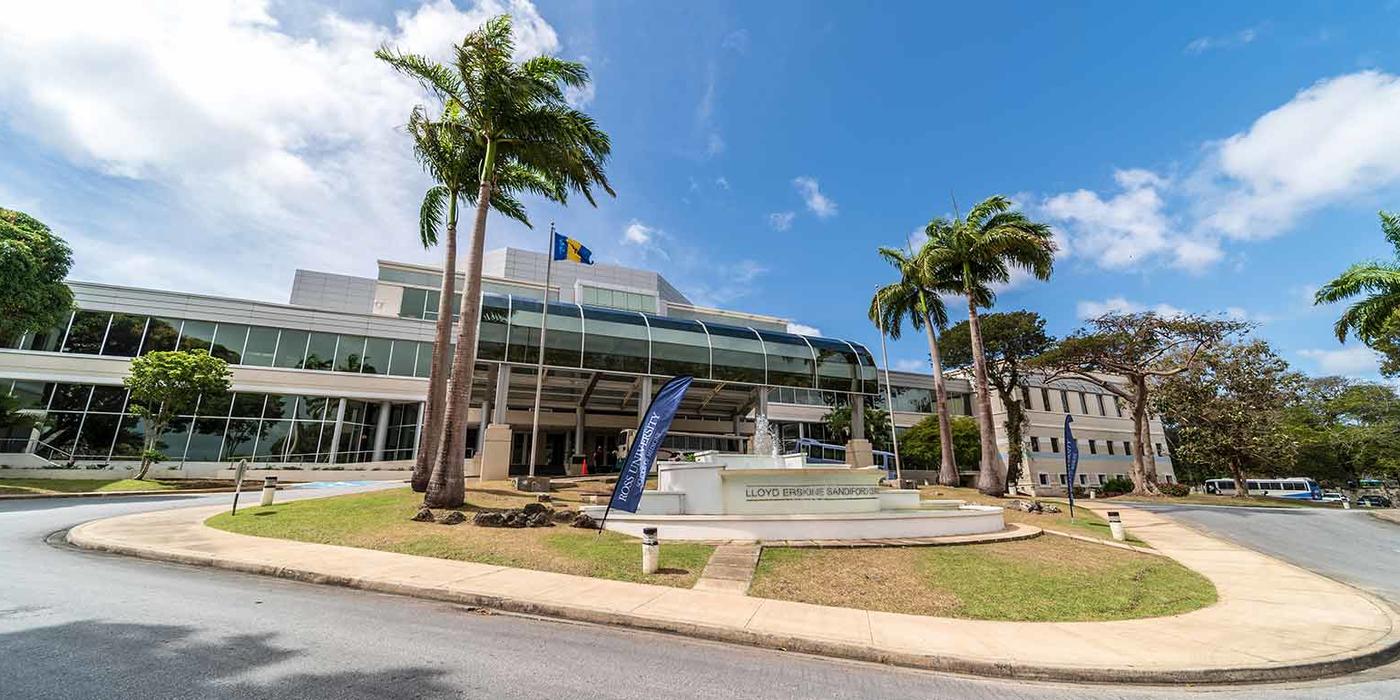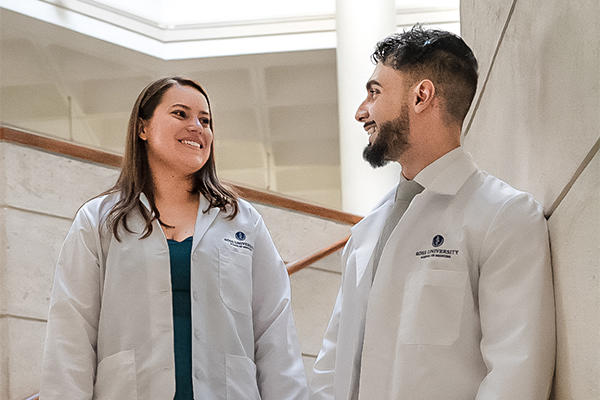Frequently Asked Questions
Yes, technically, Ross is a Caribbean medical school. Students begin academic study on our high-tech campus in Barbados, an island in the West Indies. There, our students complete their basic science courses in our Foundations of Medicine curriculum. Depending on which curricular track your son or daughter selects—they have two options after completing semester one—they’ll have the opportunity to complete the Barbados portion of the medical program in just 16 or 20 months, assuming they complete their studies on time.
That’s less than two years, and less than half of their medical education.
The remainder of their medical education will take place in the United States, where they will complete their clinical curriculum through clerkships in one or more of Ross' affiliated US teaching hospitals. Our clinical network spans across the United States and includes many teaching sites in regions of country where the highest percentage of our students came from.
To sum up, the majority of your child’s medical education will not be in the Caribbean. It will be in the United States.
As mentioned, even though Ross is technically a Caribbean medical school, the majority of your son or daughter’s education will take place in a US teaching hospital, where they will learn the principles of patient care from the same physicians who teach US medical school students.
But that’s not where the similarities end. The Ross Foundations of Medicine (preclinical) curriculum is modeled after curricula used by U.S. medical schools. In response to several US and global trends in medical education, Ross implemented what’s called an organ systems-based curriculum, meaning that students examine the physiological, anatomical, and biochemical processes of an organ system all at once. This approach emphasizes early clinical work, with patient encounters beginning as early as semester one. You can spot this teaching model in place at many medical schools throughout the United States.
To sum up, Ross strives to provide a medical education that is equivalent in content and quality to top US medical schools.
All medical students who plan to be licensed to practice medicine in the United States must take and pass the three parts of the USMLE. This includes Caribbean medical school students. USMLE Step 1 is probably the most important test taken by a medical student—residency directors look at students’ performance on Step 1 when evaluating them for a residency position.
As parents of a potential medical school student, you're likely to contribute toward the financial needs of your son or daughter. You'll likely be happy to know that Ross students are eligible for US federal funding and that we provide assistance to get the financing you need through our Office of Student Finance.
With some national organizations predicting an impending physician shortage—including the American Association of Medical Colleges (AAMC), which predicts a shortfall of about 130,000 physicians by 2020—we believe that our role in educating tomorrow’s physicians is more important now than ever before.
To that end, we don’t want financial concerns to pose an obstacle to them becoming a physician. As you think about how your loved one is going to finance his or her medical education, please keep the following points in mind:
• Tuition at Ross is comparable with private medical schools in the U.S.
• Ross students may be eligible to receive U.S. federal direct student loans through the U.S. Department of Education. This includes Federal Direct Unsubsidized Loans and Federal Direct Graduate PLUS loans. In addition, Ross students who face financial challenges during the clinical years in the U.S. may be eligible for a special loan program.
• We offer several scholarships that recognize and award qualities like academic achievement, involvement in community service activities, and commitment to becoming a physician. Your son or daughter may qualify for one (or more!) of these awards. Check out our scholarship lineup here.
To sum up, Ross is committed to assisting students and their families with exploring options for funding their medical education.
Our Admissions Committee considers each applicant based on a combination of: cumulative undergraduate GPA, pre-medical coursework GPA, advanced science courses, MCAT scores, personal essay, pre-med committee evaluations, letters of recommendation from academic and/or professional references, extracurricular activities and accomplishments, personal qualities, and a personal interview.
RUSM has three class starts a year, in September, January, and May. While there are no application deadlines, classes do fill up as the start of the semester nears. Please encourage your son or daughter to submit their application as early as possible before their desired start date to provide ample time to work with our admissions team to compete their application, submit required documentation, and prepare for enrollment.




